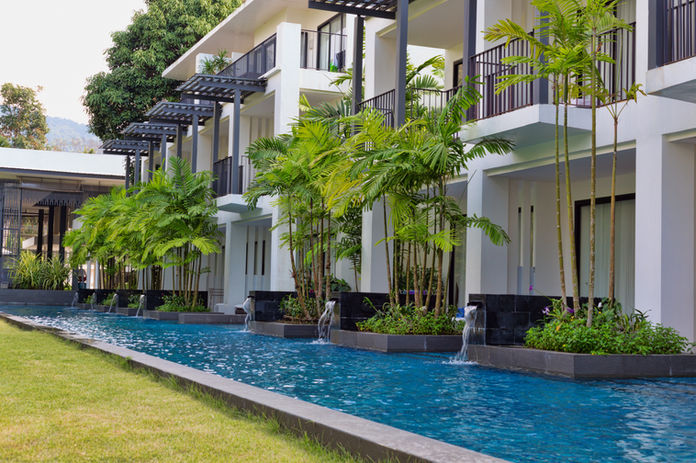Tips - Accommodation
Accommodation in Vietnam: Finding Your Home Away from Home
Moving to Vietnam means finding a place to live that suits your lifestyle, budget, and location preferences. Here’s a comprehensive guide to help you navigate the process of securing accommodation in Vietnam, whether you're staying short-term or planning a long-term stay.
1. Types of Accommodation
Private Apartments/Condominium: Ideal for singles, couples, or small families, accommodations range from budget-friendly studios to luxurious serviced apartments. Rental quotes often exclude management fees, electricity, water, internet, and motorbike parking; however, some owners may include management fees and internet in the contract. Most landlords require tenants to sign leases of at least six months, while others may insist on a minimum one-year lease. Private apartments, especially luxury ones, typically offer amenities such as swimming pools, gyms, children’s play areas, and business centres. Please note that some shared facilities may incur additional usage charges.
Serviced Apartments: Serviced Apartments are good option for anything less than 6 months. Serviced Apartments terms include management fees, internet even drinking water supply. However, electricity and water are often charged at a much higher rate than the private apartments/condominium. Typical serviced apartment are residing in a low-rise building. Some even without any elevators.
Houses/Villa: Perfect for larger families or those seeking more space. Typically found in suburban or less central areas. Some villas are offered as sub-leases to multiple lessees. The lease is normally inclusive of management fees, internet and motorbike parking.
Shared Housing/Homestay: A cost-effective option for students or young professionals. Sharing with locals or other expats can also help you make new connections.
Hotels and Hostels: Best for short-term stays while you search for a permanent home.
2. Popular Areas for Expats
Ho Chi Minh City: Districts 1, 2 (Thao Dien), and 7 (Phu My Hung) are expat-friendly with modern facilities and international schools. Some districts are catered for locals where groceries costs in wet market can be much cheaper than those supermarkets targeted for high-end locals or foreigners.
Hanoi: Tay Ho, Ba Dinh, and Hoan Kiem districts are popular for their amenities and proximity to cultural landmarks.
Da Nang: My Khe Beach area is great for beach lovers, while the city center offers urban convenience.
Hoi An: Offers a quieter lifestyle with charming traditional homes and proximity to nature.
3. How to Search for Accommodation
Online Platforms: Websites like Live in VN, and Facebook groups dedicated to expats in Vietnam.
Real Estate Agents: There are typically at least 2 parties (Owner Agent and Customer Agent). Owner Agents are responsible for all the relationship with owners including drafting a contract. Customer Agents are those who will help you find the right property and negotiate the best terms on your behalf. Please beware of unprofessional behaviours where some agents are promoting fake properties where details, pictures and price are often misrepresented. At Live in VN (LVN) ,we pre-vetted the partners who will only promote available and real properties. Working with a professional Customer Agent will help you save time and reduce future issues.
Word of Mouth: Live in VN's customers are often referred by other happy customers who have been with us for many years. Those customers understand the value of reliable customer agent to support them and defend their rights during the lease terms. We have seen cases where customers lost their deposits because they signed directly with the owner with unfavourable terms.
On-the-Ground Search: Walking through neighbourhoods and looking for “For Rent” signs can be effective. This is the least preferred option as good properties are often not advertised this way.
4. Understanding Rental Agreements
Lease Terms: Contracts are typically for 6 months to 1 year. Shorter leases may come at a higher cost. Some owners can demand the same deposit for shorter lease terms.
Deposits: Expect to pay 1-3 months' rent as a security deposit. Higher deposit (>1 month) is often paid for those newer apartments or modern furnished apartments.
Utilities: Clarify if rent includes utilities like electricity, water, internet, maintenance fees and car/motorbike parking.
Language: Ensure the contract is in English or translated, as many are written in Vietnamese.
5. Budgeting for Accommodation
Hanoi and Ho Chi Minh City: Average monthly rent ranges from $300 to $1,500, depending on the location and type of property.
Smaller Cities and Rural Areas: Rent is significantly cheaper, starting at $150 per month for basic accommodations.
Additional Costs: Utilities, internet, bike/car parking and property management/maintenance fees typically add $50-$100 monthly.
6. Tips to Avoid Scams
Verify Ownership: Ask for proof of ownership or authorization from the landlord.
Inspect the Property: Visit the property in person before making any payments. if you are unable to visit, please ask someone else you know to inspect on your behalf.
Avoid Upfront Payments: Never pay large sums without a signed contract. You can still secure a property by paying a small portion of the rent (typically 10-30% of the monthly rent) with the view you will sign the contract during check-in (less than 2 weeks).
Research Landlords: Check reviews or ask other tenants about their experiences.
7. Furnishing Your Home
Many apartments come fully or partially furnished. If unfurnished, you can buy affordable furniture at local markets or stores like Lazada, Shopee or IKEA.
Second-hand options are available through expat groups and online marketplaces.
8. Key Contacts and Resources
Real Estate Agents: Reliable professionals in your city. Live in VN have a network of professional agents who have supported hundreds of happy customers in the last few years.
Expats’ Facebook Groups: Great for recommendations and finding roommates.
Local Authorities: For residency registration after moving in.
Finding accommodation in Vietnam can be an adventure, but with the right preparation and resources, you’ll find a place that feels like home. Take your time, do your research, and enjoy the journey of settling into your new surroundings!




